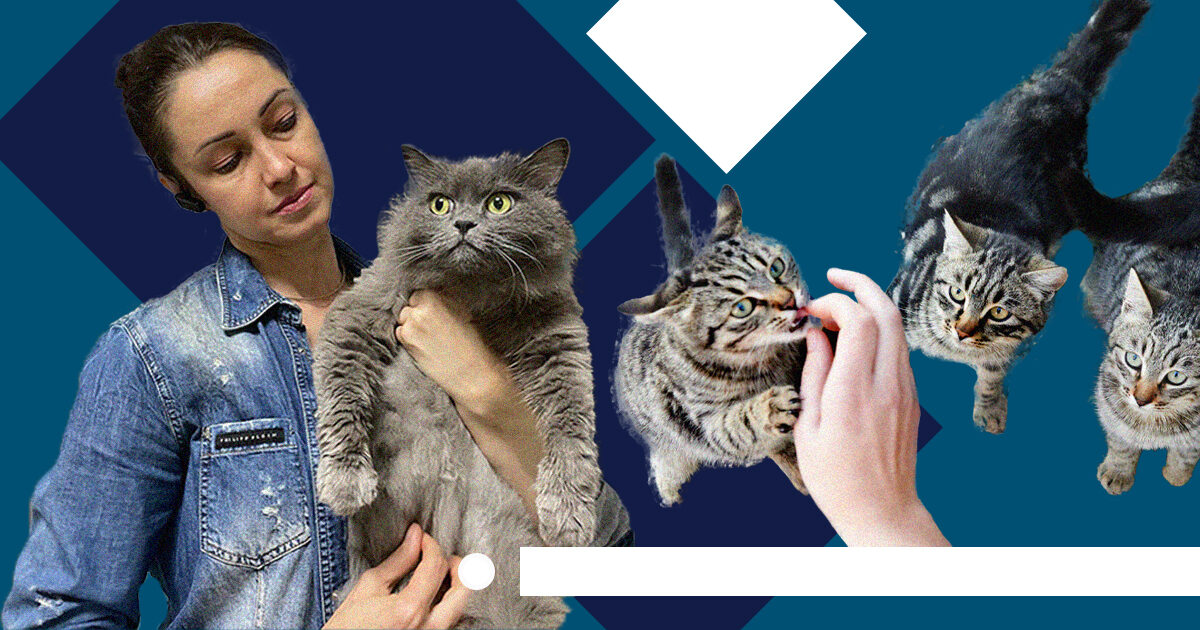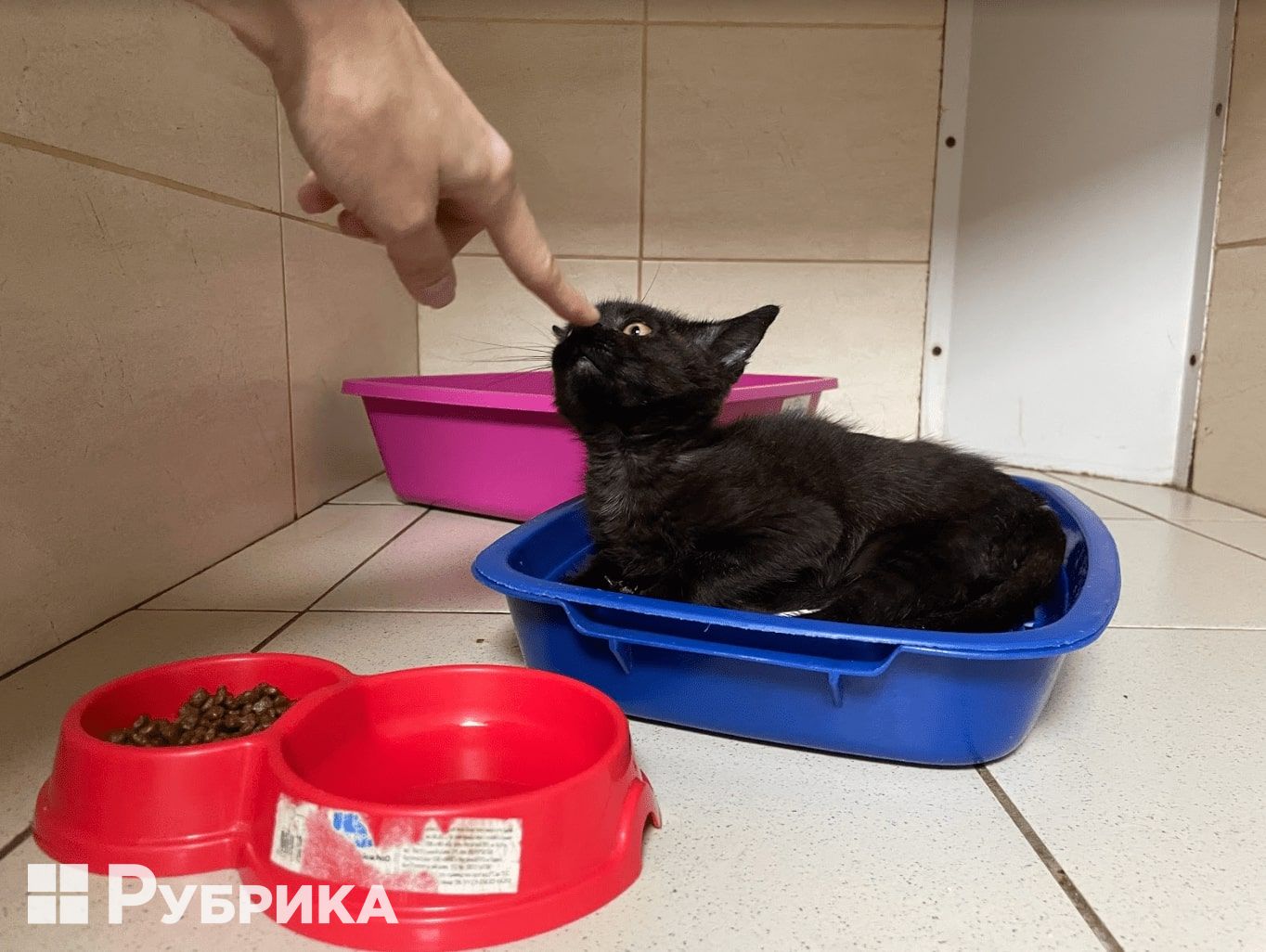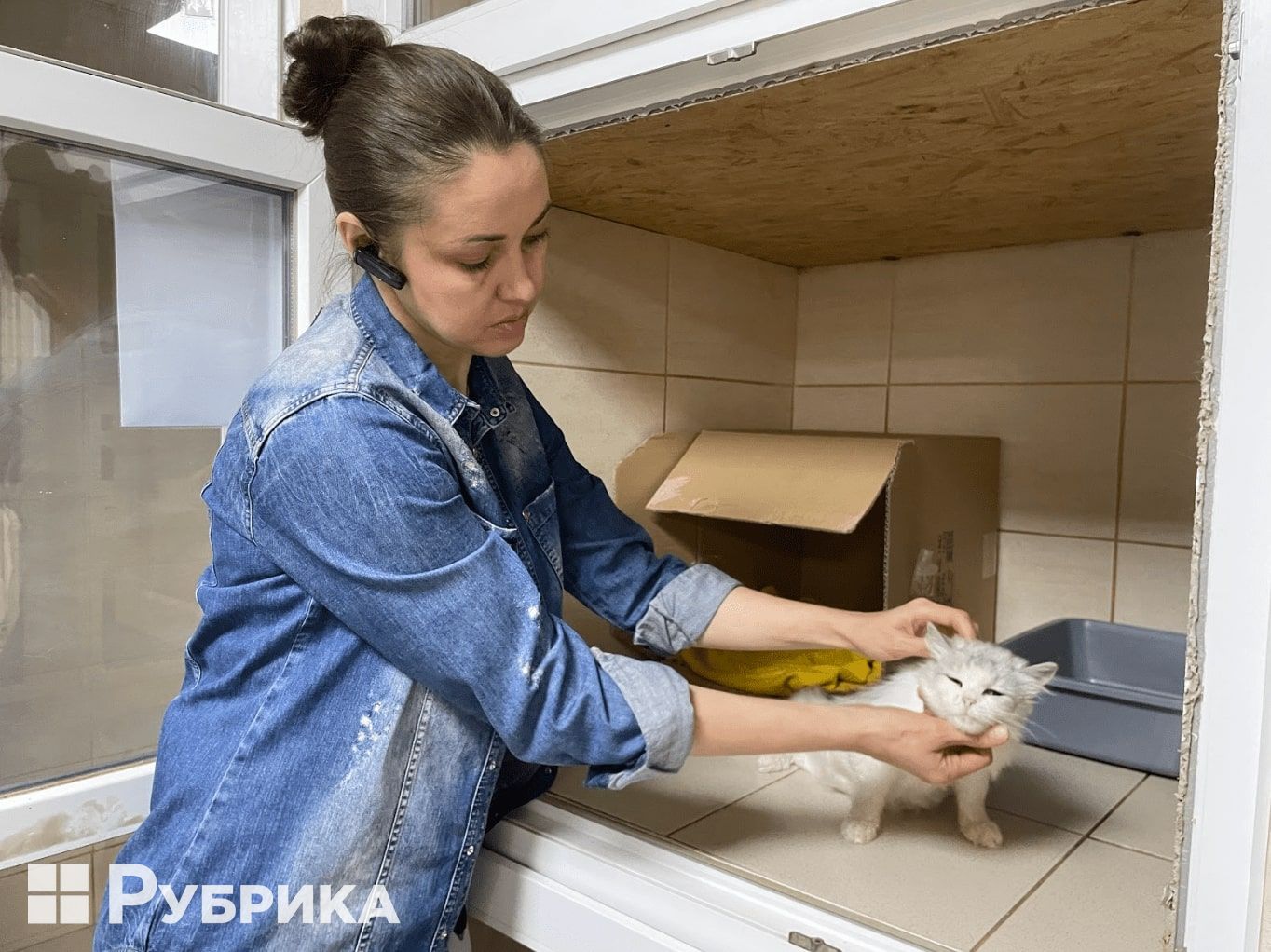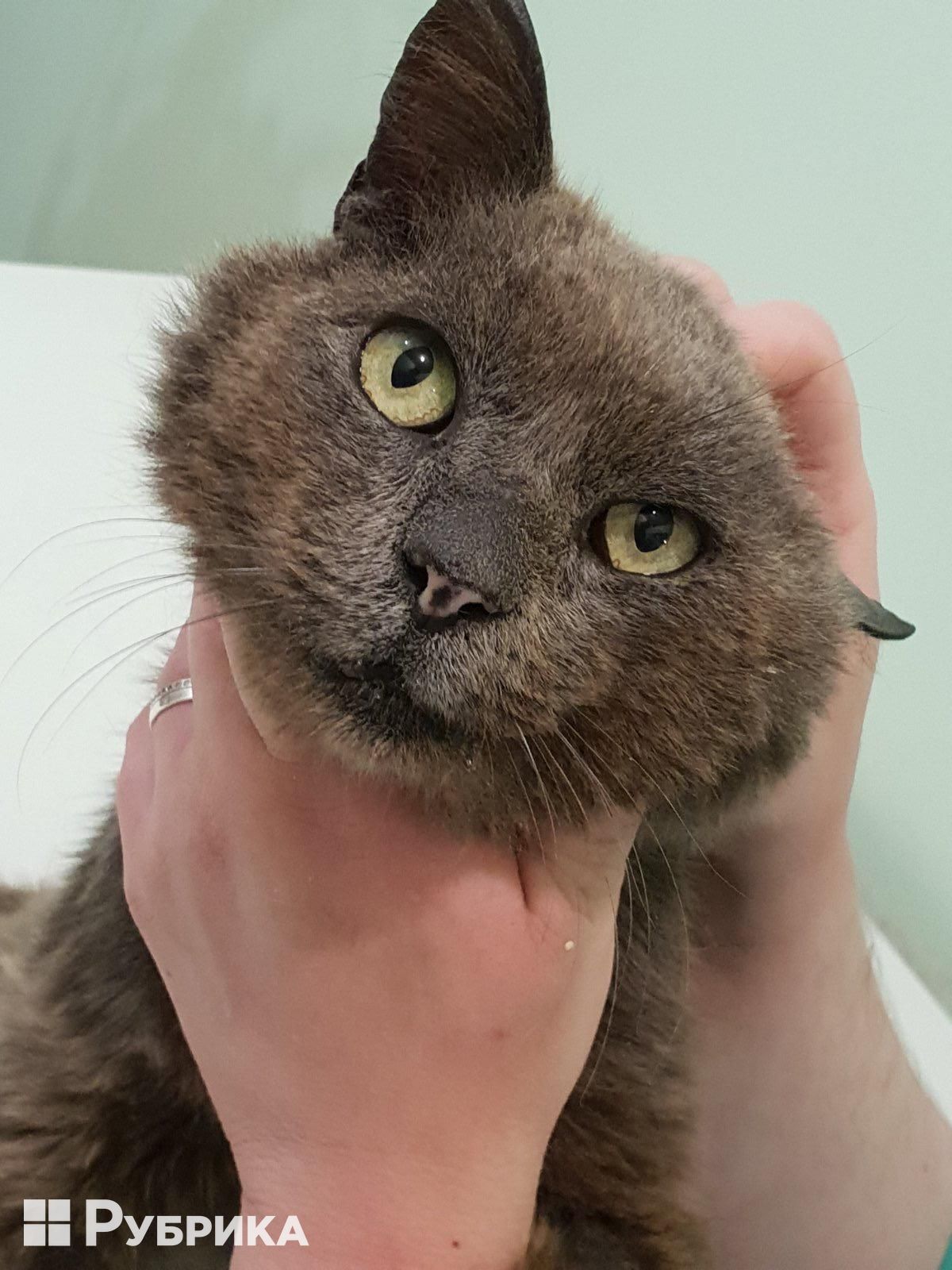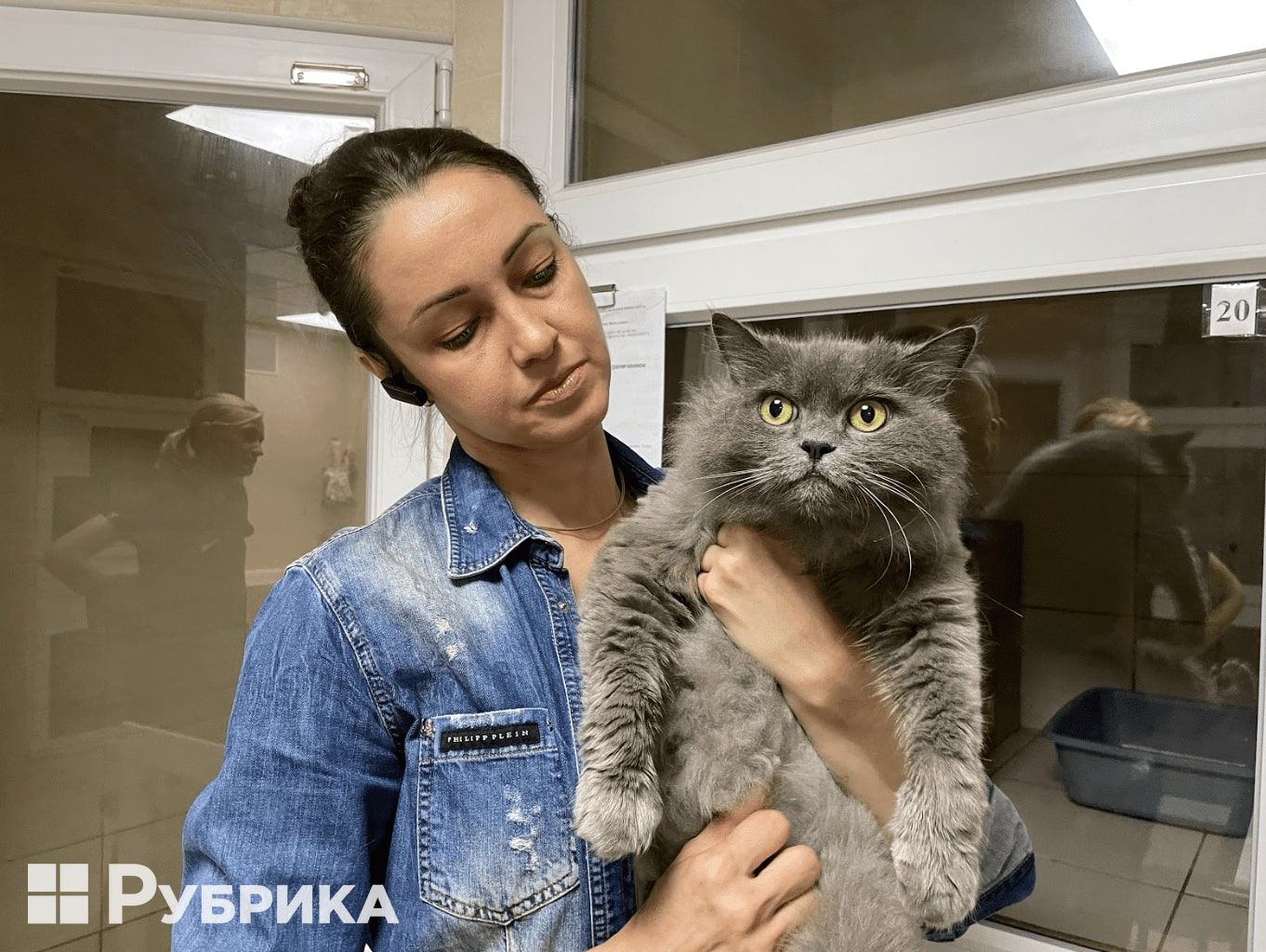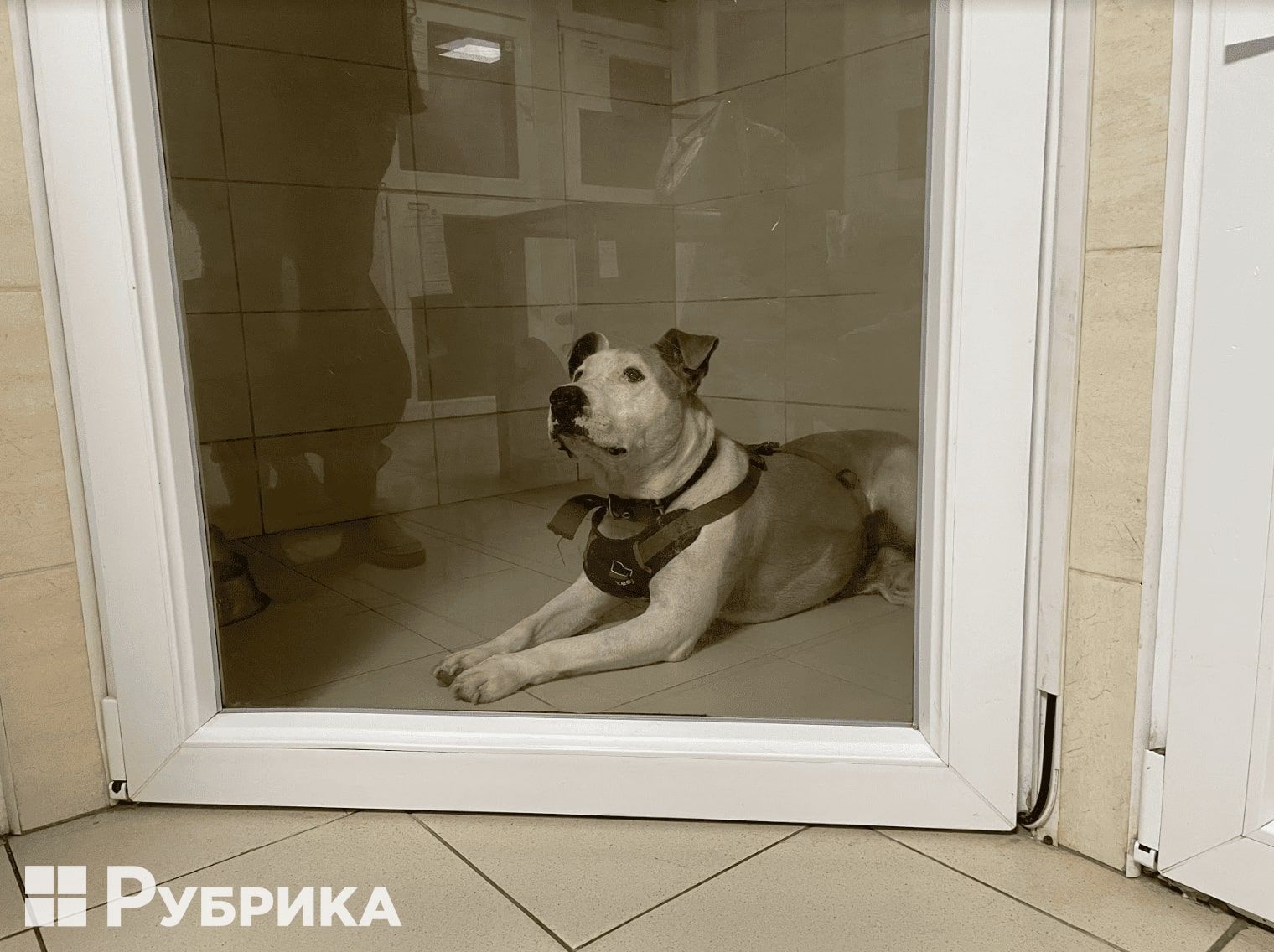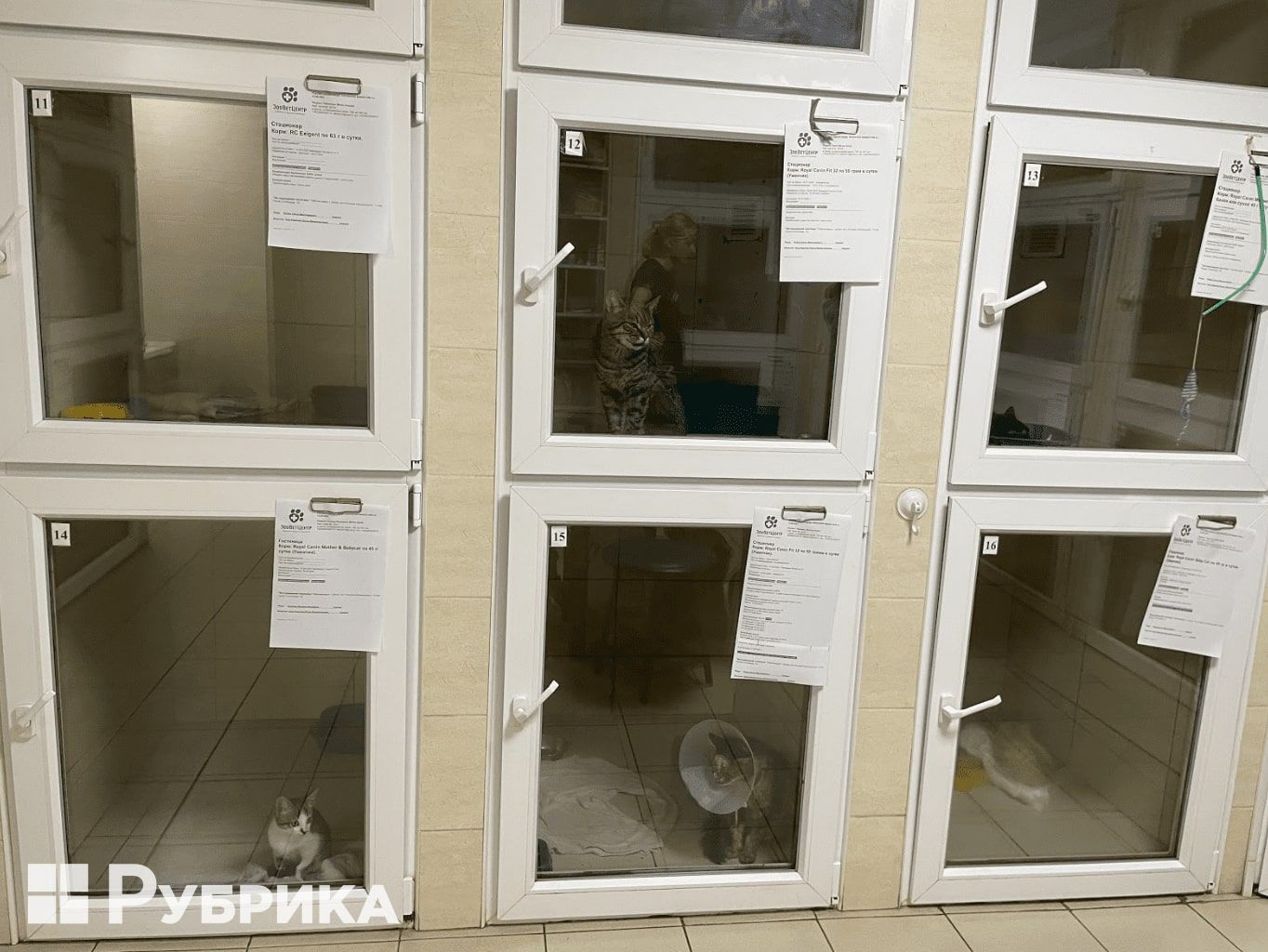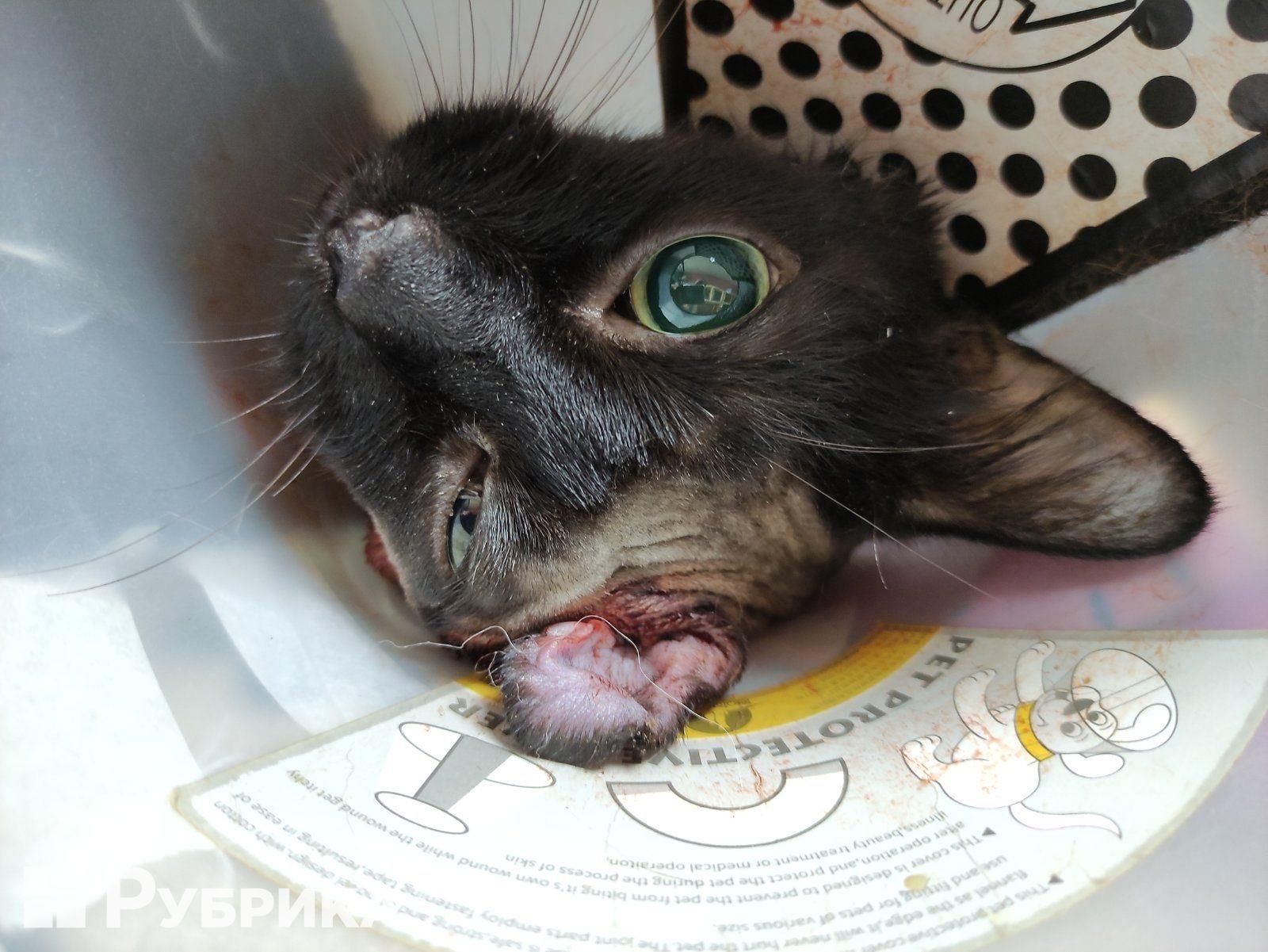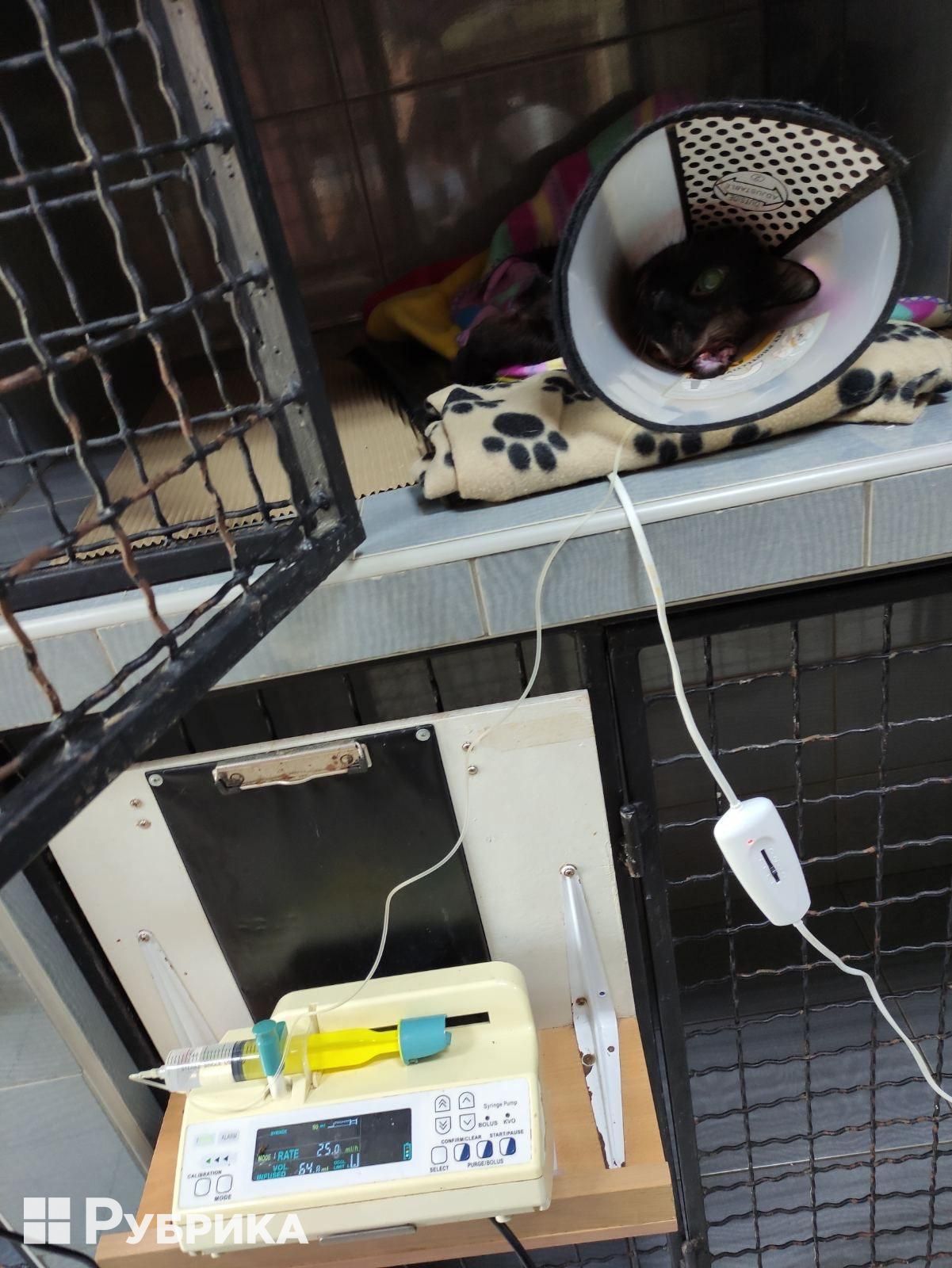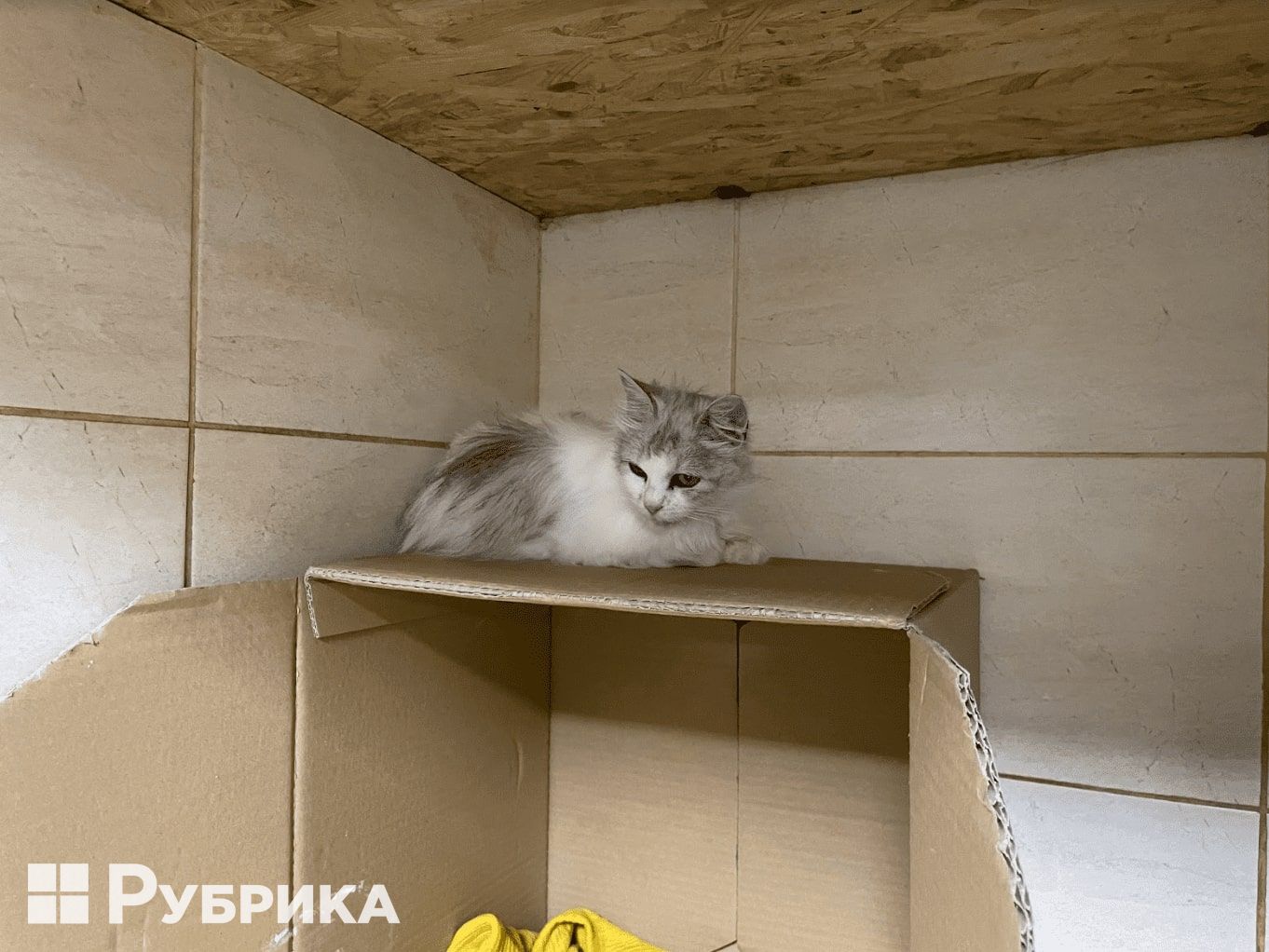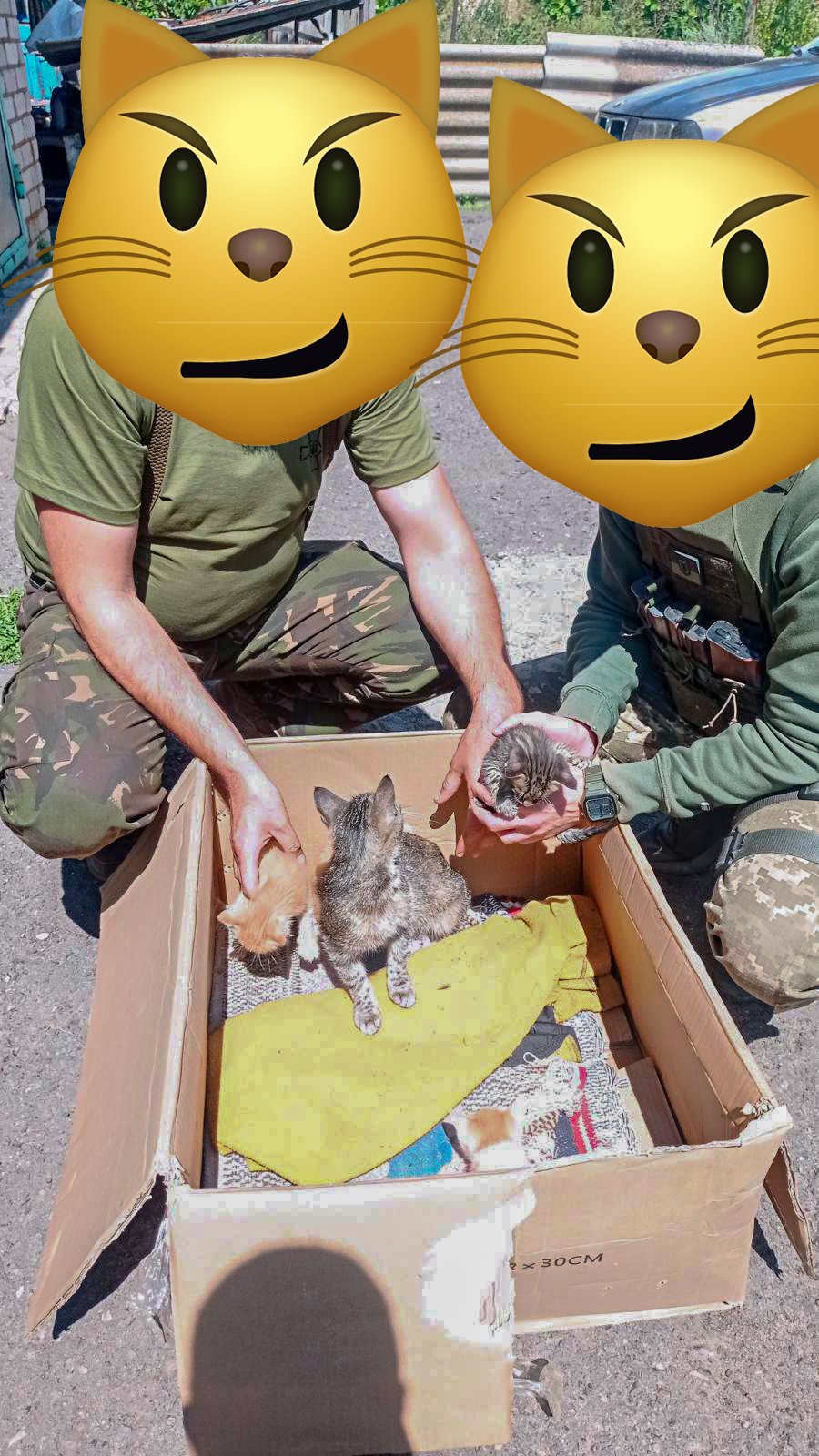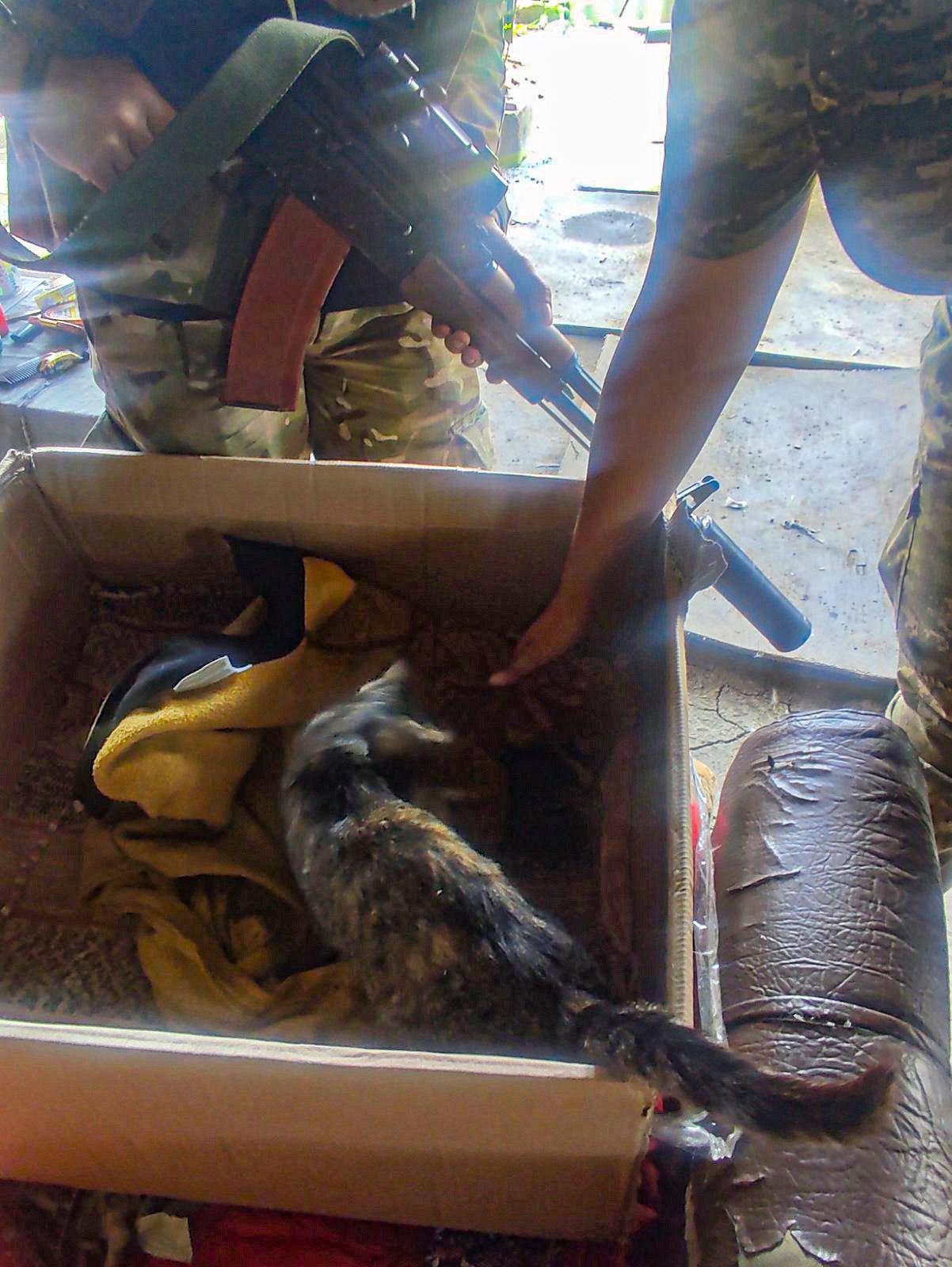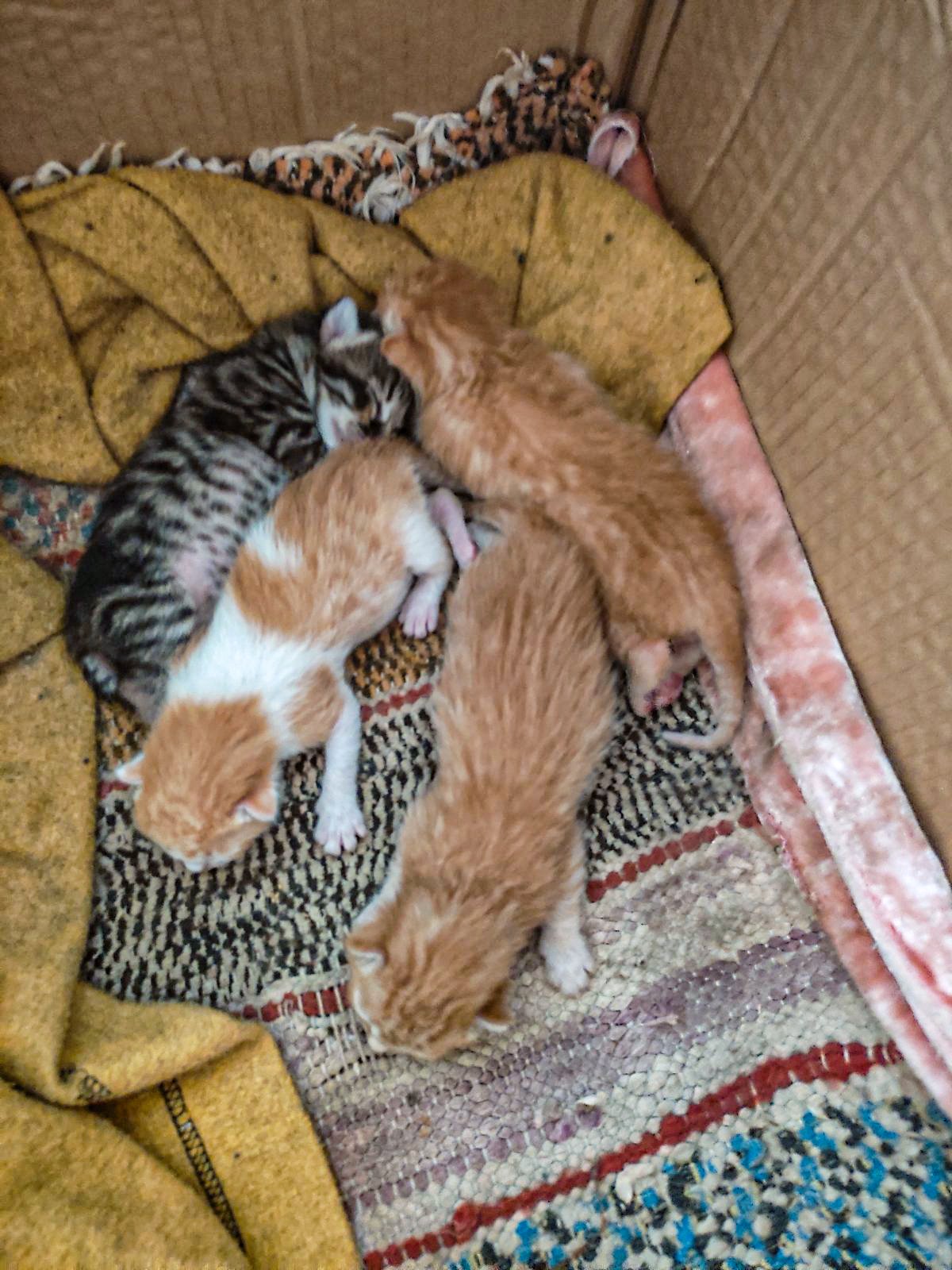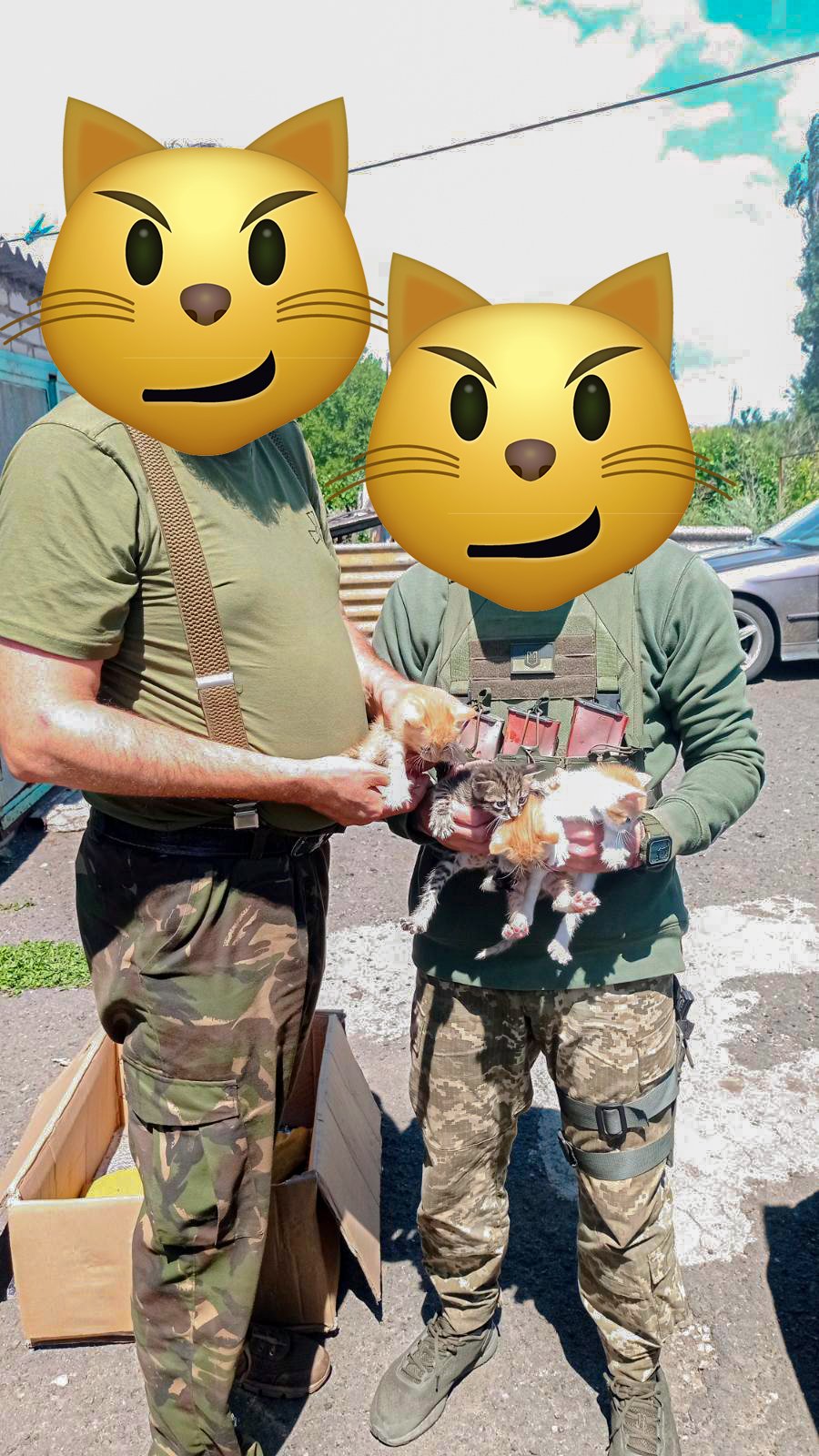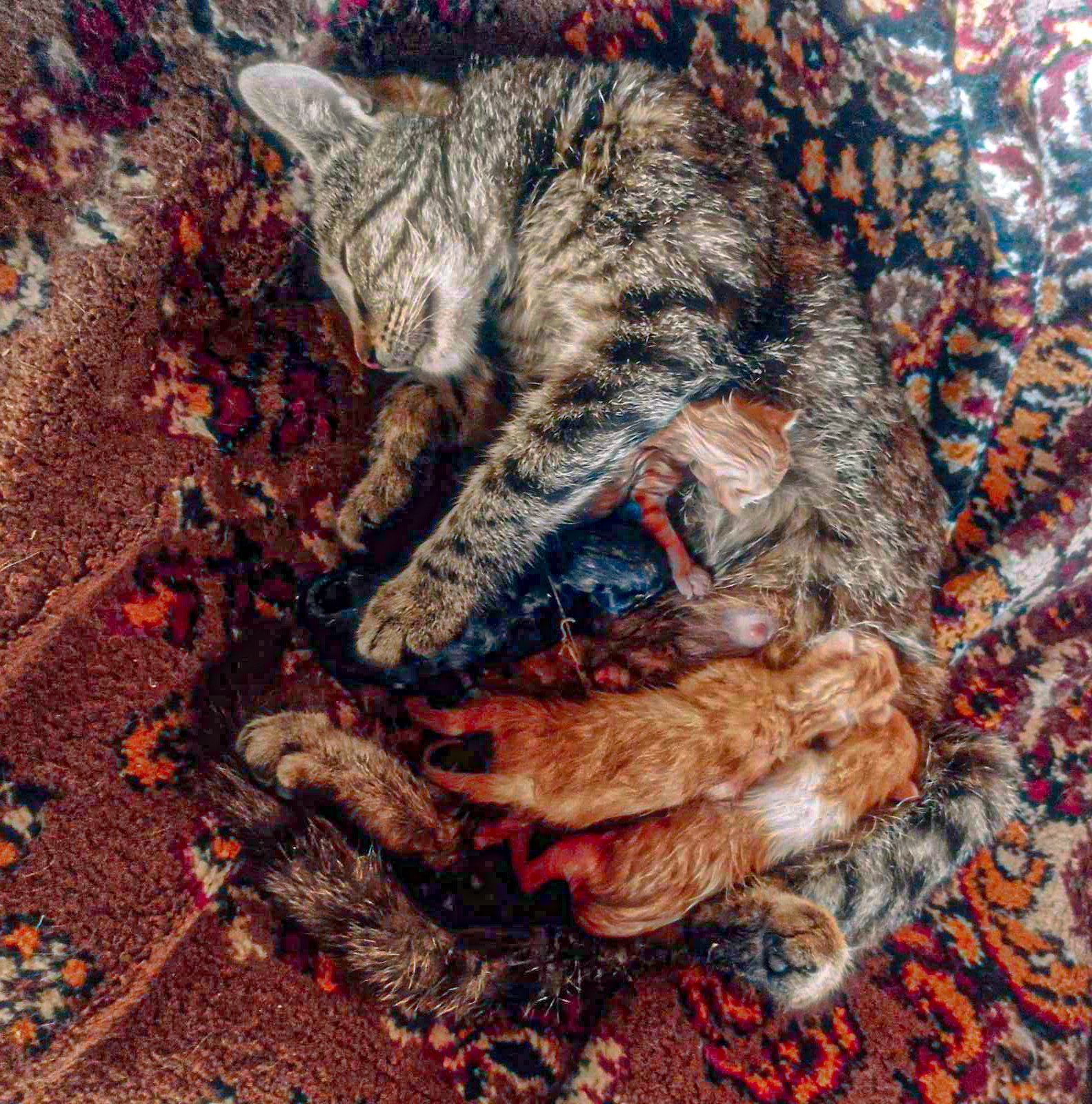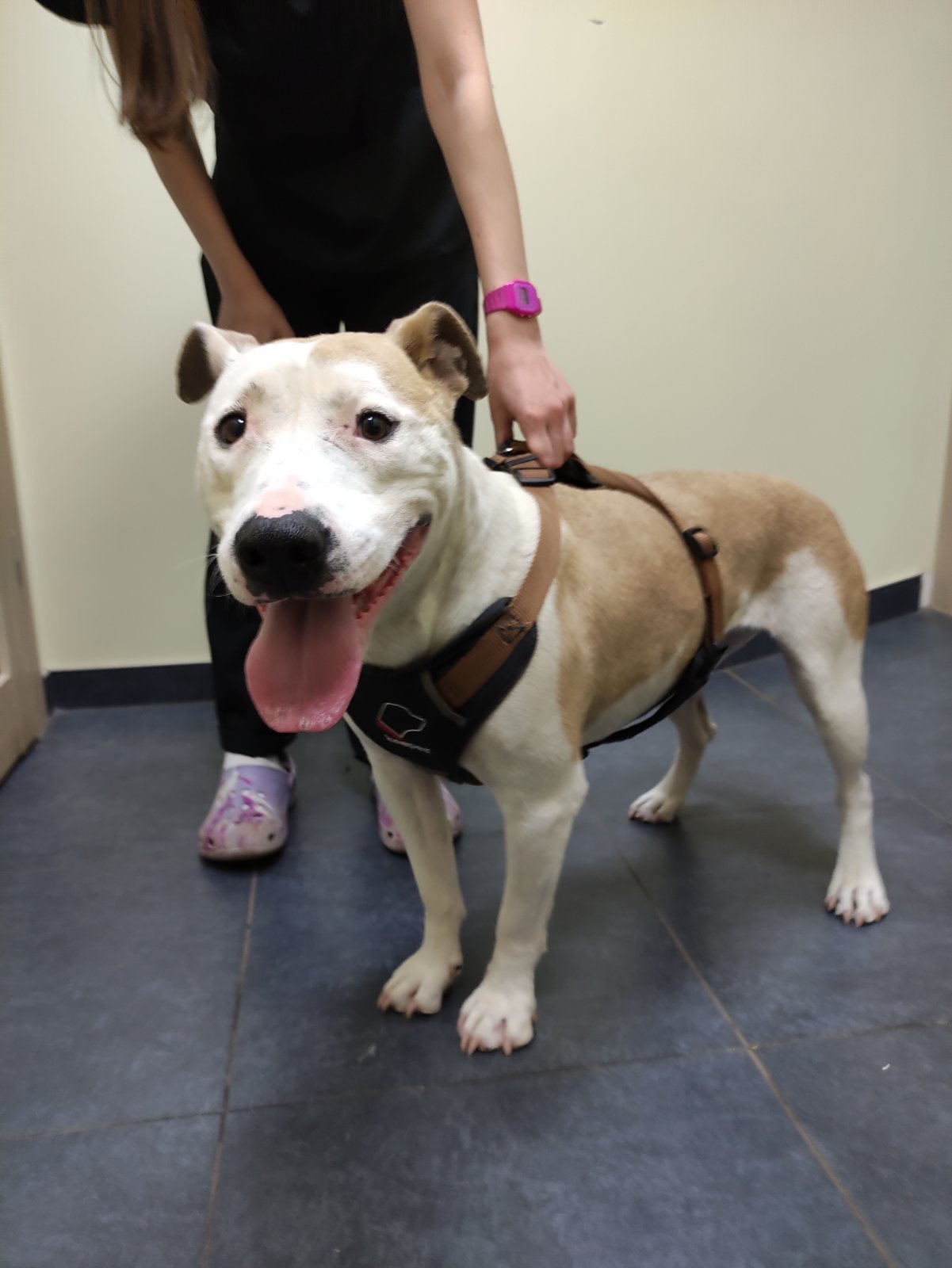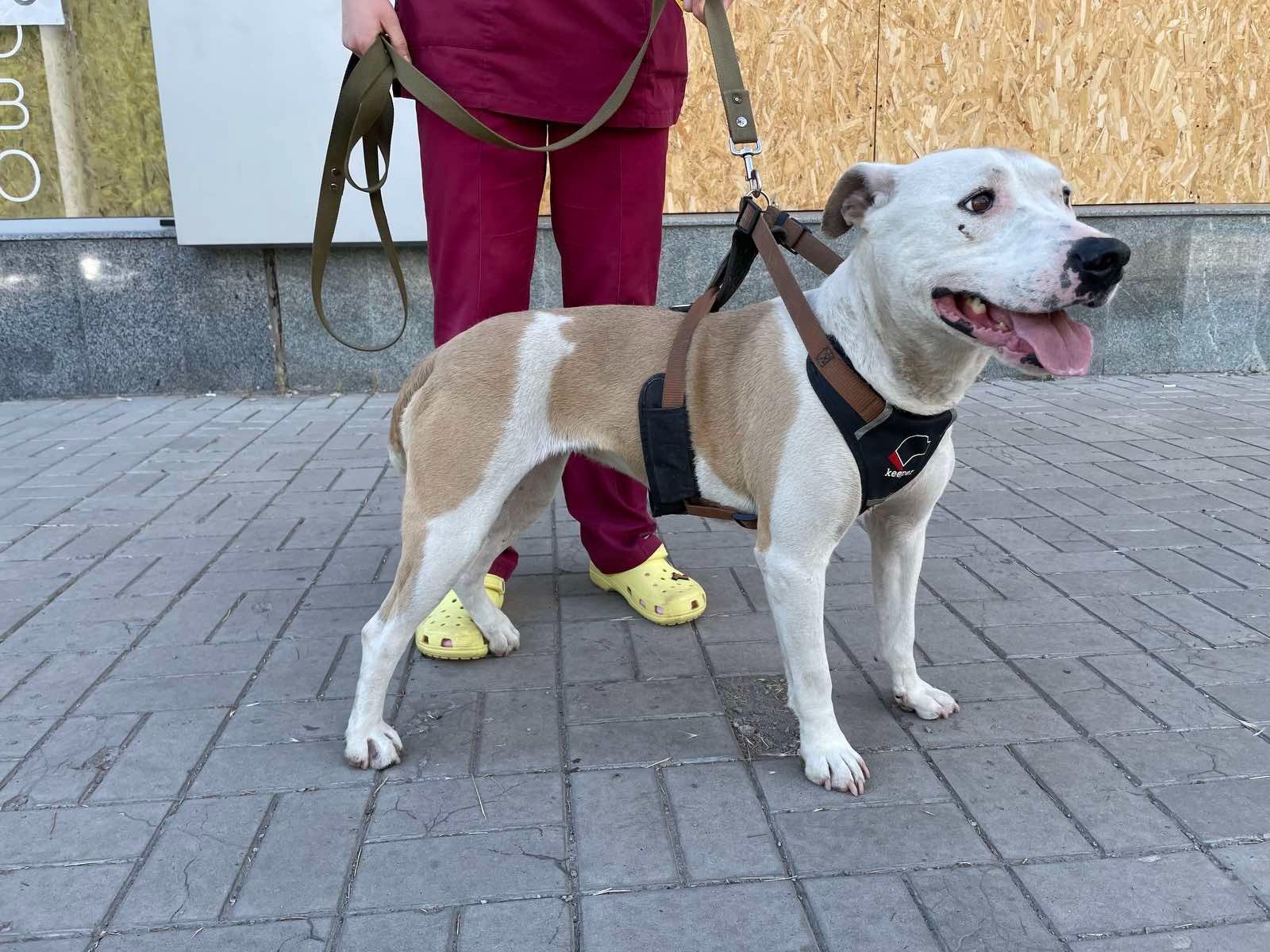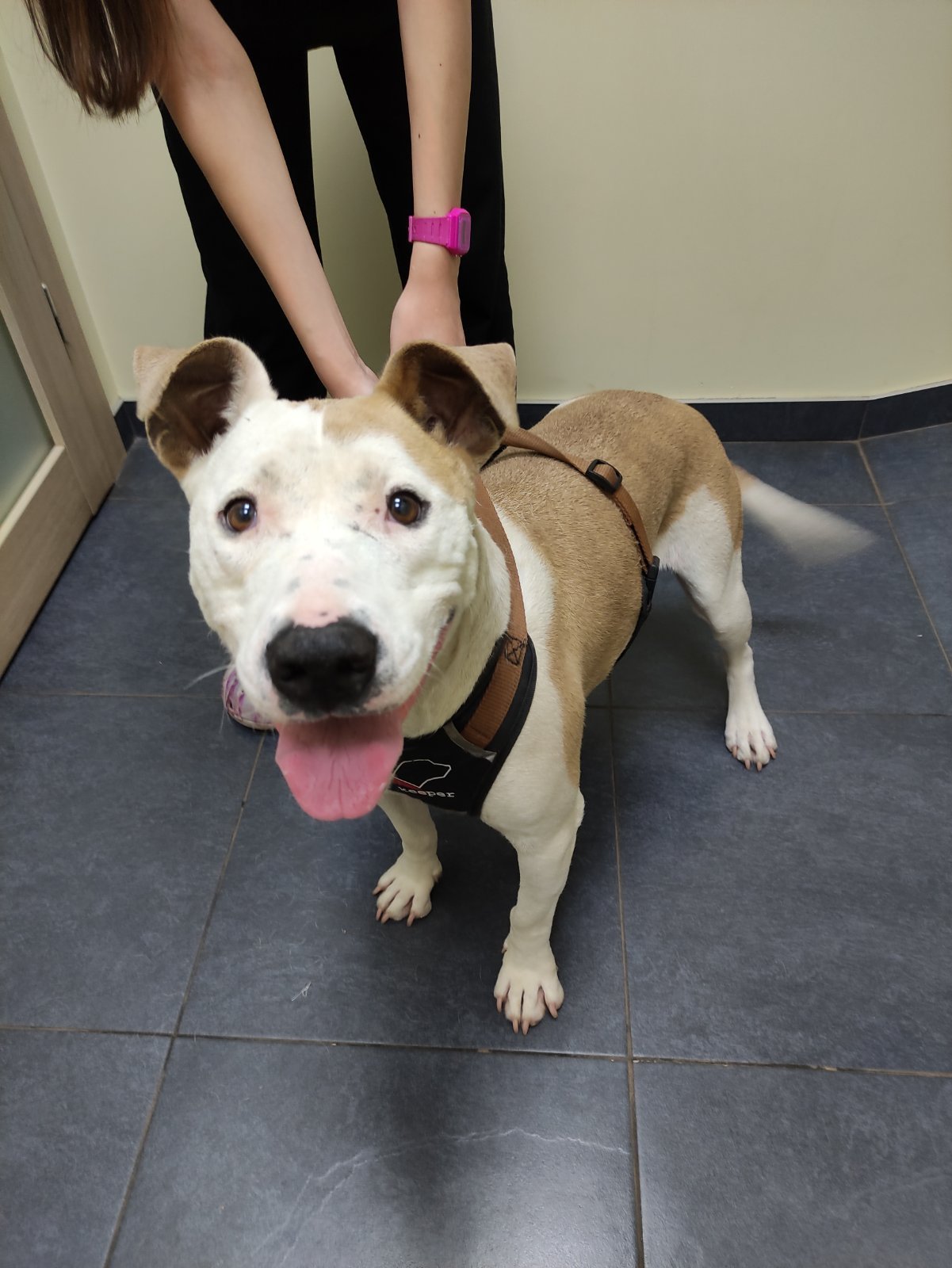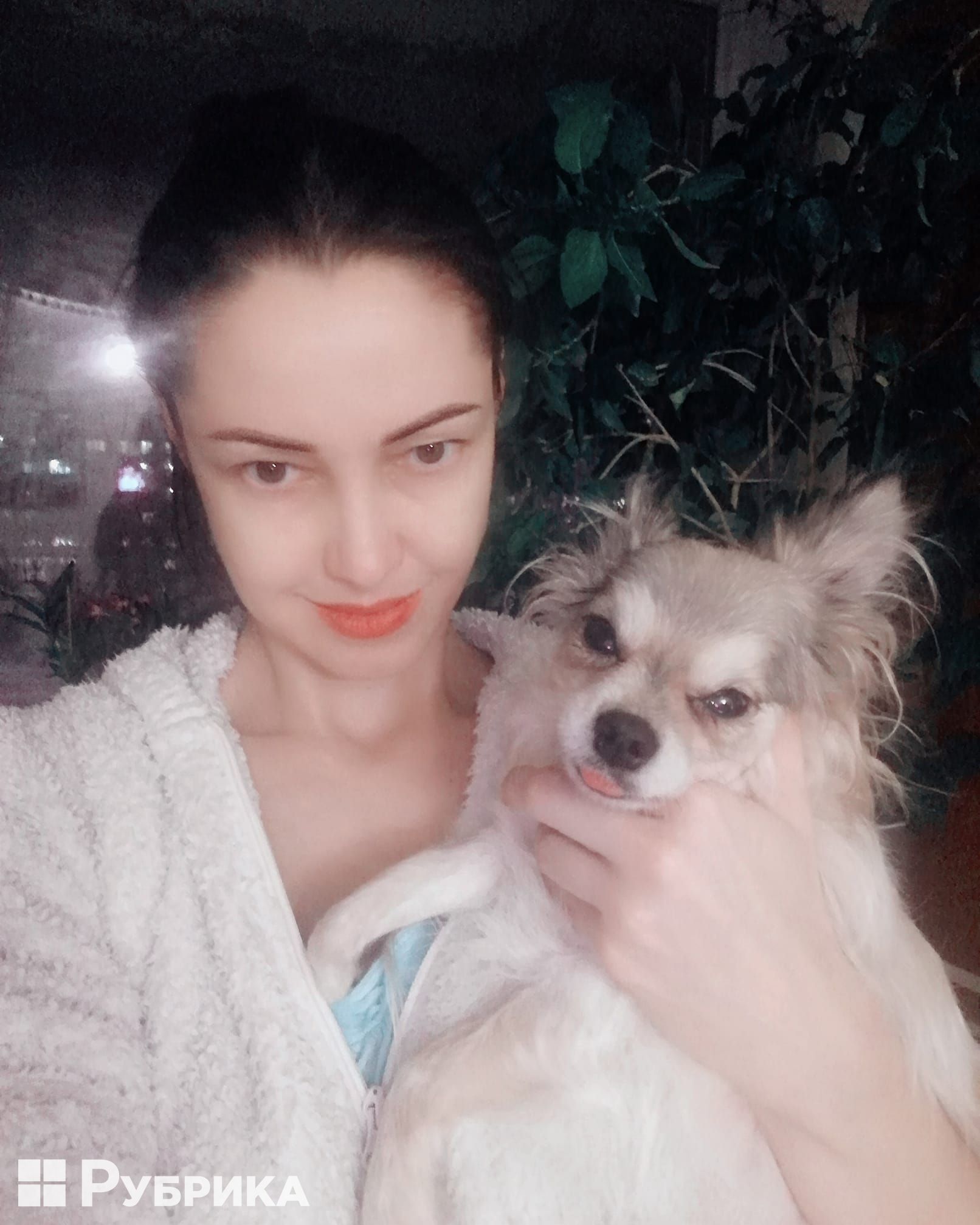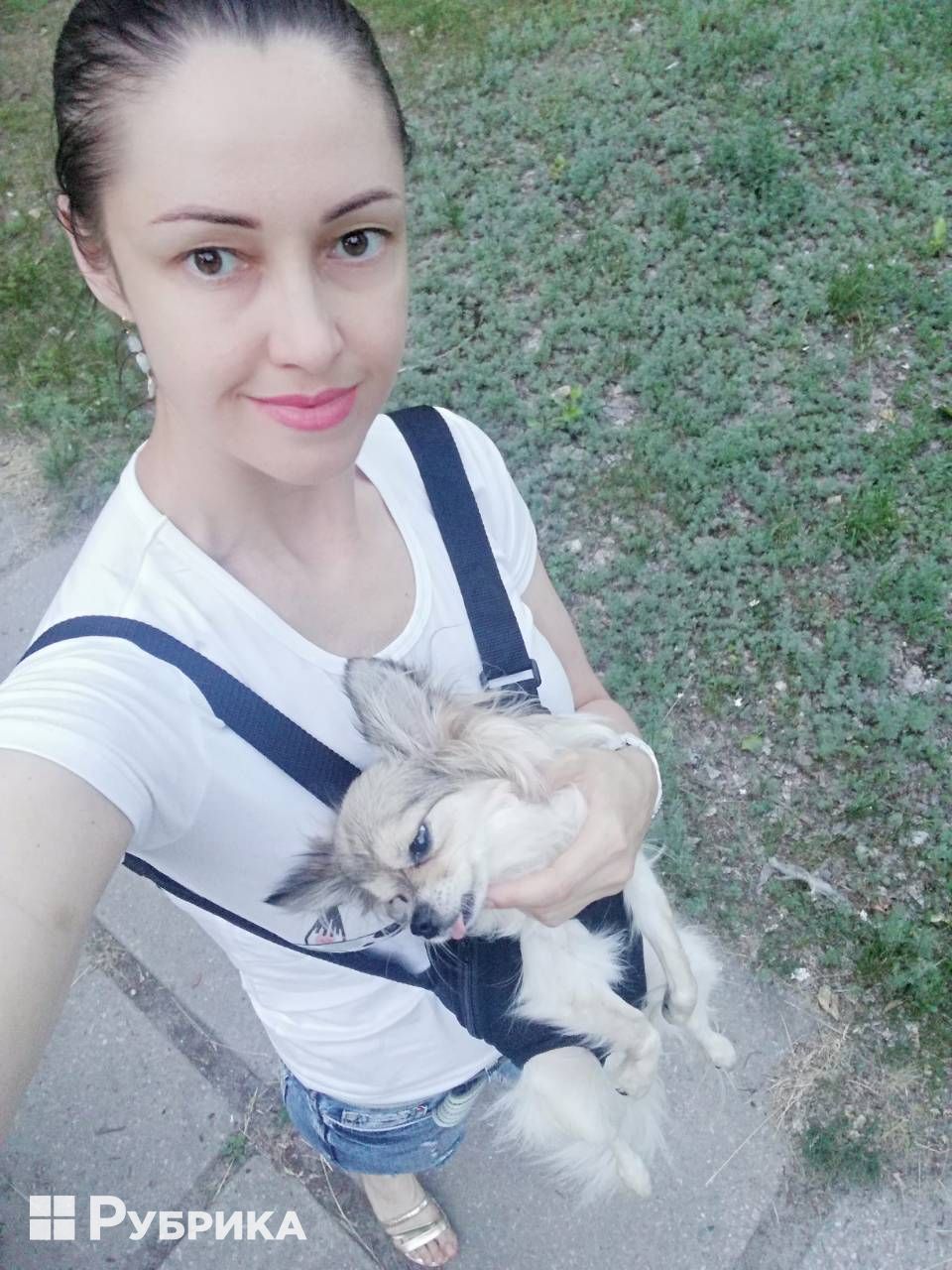
Ten years ago, Olha Umanchyk started taking care of homeless animals. At first, she helped in one shelter, and then she founded her own small one — "We are for the right to life." By February, there were about a hundred animals in it. With the beginning of a full-scale war, saving those four-legged friends who remained under fire and lost their owners was necessary.
Wounded and under stress, Olha's shelter currently has several dozen furry "refugees," as the volunteer calls them. There are also many Dnipro animals here. But every dog or cat wants to change the cage or temporary shelter to a loving and permanent family. So take a look at the four-legged ones in this text; maybe there is someone for you here?
"We are for the right to life"
In the cool basement of the vet clinic, a couple of dozen cages – eyes shining from each. Worried, scared, painful. When they see a person coming down to them, some of the animals press their noses to the windows, begging for attention, others do not move. They cannot because of injuries and diseases.
Most of these patients have the last name "Umanchyk" on the paper. They are under the patronage of Olha Umanchyk, who founded the mini-shelter "We are for the right to life" in Dnipro five years ago. There are always more than a hundred animals under the care of the shelter, mostly cats, who live in the shelter, at the homes of volunteers, and in vet clinics.
When the full-scale war began on February 24, Olha Umanchyk began to worry a lot about her animals. She did not even think about evacuation from the Dnipro because it was impossible to leave her pets:
"When it all started, at first, there was a shock. Then the question arose: how to feed everyone? We buy food once a week or two. We had to find funds for this and buy the feed itself. We borrowed money, and people also helped: many Europeans sent money. They bought what they could. They took everything from the suppliers. Sometimes we were even told: "We need to leave something for other people."
Since February 24, work at the shelter stopped for three weeks and resumed with the first urgent case – a cat from Dnipro that needed treatment. After it, there was already a stream of both local animals and those brought from the territories where hostilities were taking place.
What is the problem?
Animals from under shelling
War is no less difficult for animals than for people. They are also scared and get injured, says volunteer Olha Umanchyk. Moreover, many four-legged animals in the regions where the fighting occurred were left without owners who evacuated.
"Refugee" animals appeared in Dnipro thanks to volunteers. Those working under shelling often took lonely and wounded four-legged friends with them. Such was the case with the chartreuse Sky, who caught a bullet. It went near the heart but did not touch it.
In total, the shelter accepted forty such "refugee" animals. Mostly these are cats — it's easier with them, Olha says.
"I noticed three waves of the animals' influx: the first – from those people who left immediately. The second was the evacuation of those for whom the first ones partially left the animals. And the third – now – the following across the Dnipro, when the owners leave their pets here and go further," says Olha Umanchyk.
Olha gets one of these cats. The owners abandoned the thoroughbred animal in the shelter in Synelnykovo. Currently, she is in the Dnipro veterinary clinic of a mini-shelter. The cat, which looks like a fluffy loaf, calmly let her belly be stroked but was still a little surprised because she is not used to frequent petting.
The second problem is the health of rescued animals. According to Olha Umanchyk, almost all pets brought to Dnipro had diseases. Because the body of a cat or dog, which spent its whole life in comfort at home and suddenly found itself on the street due to the war, could not withstand the new conditions.
"If it is an old animal, it is immediately tested to detect hidden diseases, which cost about a thousand hryvnias. After — the sterilization or castration — depending on the clinic, it is 500 or more hryvnias. There is also a paid stay for at least a week and treatment for fleas and worms. "If a healthy animal arrives, it will cost about two thousand hryvnias. A four-legged one with diseases is a different amount," Olha calculates.
What is the solution?
How to rescue animals
Of course, to save animals, help as much as possible, and encourage people to do it.
"When the war first started, vet clinics said they would close because they wouldn't work under shelling. Our dogs who were there had nowhere to go because they are not small animals; you can't move them all around apartments. In desperation, I wrote a post on social networks, and people began to respond! All the dogs were taken away; many were taken forever, and now they are home," says Olha Umanchyk, smiling.
Some pet owners were ready to shelter a second, third, or fourth pet. Sometimes they even had to be stopped:
"In my questionnaire for potential owners, a new question appeared: 'What are your actions if you have to evacuate?'. Many answered: 'We will take them all with us.'" I asked them to think: because if there are already three cats, and these are three carriers, they need three hands. "We didn't think about it," they told me: "But we still want to help." If there was such a strong desire, then I advised spreading the post about the animal so that it would quickly find owners for whom it would be easier to take it with them."
They were able to take "refugee" animals to the vacated places in the mini-shelter.
"It happened that volunteers with animals came out to me themselves. Or I saw posts about a problematic four-legged dog and offered my help myself because I have experience working with various diseases among animals. For example, purebreds have their own genetic diseases. So I worked with them."
How does it work?
We will explain using the example of cats from Sievierodonetsk
Pensioners were evacuated from Sievierodonetsk to Dnipro. The old women arrived in a car with the inscription "Volunteers." When Olha saw them, her heart almost jumped out of her chest. They are both 80 years old, but they took four cats with them in bags. Three had diseases, but they were quickly treated, and the fourth – Benya – did not let anyone near him for several weeks. Due to stress, he threw himself against the cage.
"It had been on sedatives for a month. At some point, it stopped eating, and I noticed that his ear was bent. And if it was bent, it meant that it was damaged because it was itching. We started figuring out what kind of disease it had," says Olha Umanchyk.
It turned out that Beni from Sievierodonetsk had started otitis, which led to purulent inflammation in the head. The treatment was long: two surgeries (one cost 16 thousand hryvnias, the other 22), tests, and recovery. The cat was saved thanks to the veterinarians' perseverance and the money people donated.
"His retired owners, who at that time had already gone to Kyiv, also tried to help. They sent money little by little and transferred about 2-3 thousand hryvnias. Also, the elderly couple really asked to take one of the cats they brought with them because they loved the cat a lot."
One, already completely healthy, was sent to them, two were placed with other families, and Benya is still waiting for his owners.
Such different stories of the rescued
Olha Umanchyk says that the breed and high cost do not protect the animal in any way. During the full-scale war, there were several cases when, together with fellow volunteers, they had to rescue four-legged animals that lived with breeders.
"Around Kharkiv, there were a lot of shelters with purebred animals. We offered to take them all away, but the breeders gave us old, exhausted animals that could no longer make money. And for each puppy, they asked for a thousand hryvnias. We said: "Give the children over, they are under shelling, just like you!" And they refused."
"Around Kharkiv, there were a lot of shelters with purebred animals. We offered to take them all away, but the breeders gave us old, exhausted animals that could no longer make money. And for each puppy, they asked for a thousand hryvnias. We said: "Give the children over, they are under shelling, just like you!" And they refused."
Another similar story was when the breeders, who were already in the territories occupied by the enemy, gave sick and old animals to volunteers. However, young ones, still "moneyable," as Olga says, were taken abroad.
But along with such cases, there were completely others. One emaciated cat with a big belly clung to our defenders. She gave birth to kittens in a trench. The big furry family lived with the soldiers for two months, but then it was sent to Dnipro for care. The cat has already been taken away, and the kittens are prepared to be given away in a few weeks.
5-year-old Marusya is also looking for owners. American pit bull terrier lived with the owner, but he left to defend the country. The man gave the dog to the neighbors, but the restless animal dug holes, jumped over the fence, and ran away to his house. So that she would not accidentally get hit by a car, she was handed over to volunteers.
Although Marusya looks like a dangerous fighting dog, she has an affectionate character. She immediately starts playing and licking people if she is released from the cage.
"Maybe you're a collector?"
More than a hundred animals are currently under the care of the "We are for the right to life" mini-shelter. Olha's whole day revolves around them: many have to be driven to doctors; she has to keep track of appointments and look for new families. The volunteer has been living with these concerns for about 10 years.
"At first, it was difficult. My mother called: "Honey, I'm worried. I'm afraid you will be like those grandmothers with a hundred cats and house stench. Maybe you're a collector?". But that attitude has already passed. My mother has a dog herself, which we bought from breeders," says Olha.
The son also gradually got used to the fact that Olha is often not at home or she talks a lot on the phone. "Sometimes, when I'm in a lot of trouble, he says to me: 'Mom, can you talk to me?' He also has a cat in his room. We took it home to socialize, but it remained with our son. And now it lives with us."
In total, 13 animals live at Olha's house — both her own and from the shelter. The woman takes away those furry ones who find it difficult to find a family. It is how the chihuahua Simochka became her pet. It is a "sausage dog," as Olga calls it, because the animal does not walk at all, only rolls over.
"We did a lot of surgeries to put the dog on its feet, but it didn't work. She is smart, always patient, and uses puppy pads. When she sees me, she screams for me to hold her."
Working with animals is extremely difficult and emotional, especially sometimes, despite numerous efforts, some cannot be saved.
"It's hard for me to accept such news, but we have a lot of four-legged friends, and they all need attention. This allows me not to dwell on the bad. If I receive information that someone has died, it means that in 15 minutes, they will definitely send a funny picture of an adopted animal. Or someone calls and asks if someone can be taken from us. I wanted to give up a million times, but how will they be without me? There are so many animals. Urgent cases occur every day. And they all need my help and yours."
How to help the shelter "We are for the right to life"?
- Instagram of the mini-shelter and its Facebook. The shelter is open to communication – you can message each of these pages to find out about the specific needs of the shelter right now.
- We also leave the contact of our heroine – the curator of "We are for the right to life" Olha: +38 093 235 03 70
- Details for financial assistance:
4149 4991 3681 6293 PrivatBank
4731 2196 3075 1208 PrivatBank
5375 4141 0707 6654 Monobank
5167 8031 0024 4404 OschadBank
4149 5001 1296 4237 RaiffeisenBank
If, after reading the text, you want to take one of the mentioned animals or another animal from the mini-shelter, write to Olha. But remember, each animal will be given only to responsible hands. The volunteer can ask about the pet's future living conditions and your previous experience of keeping cats or dogs. An animal that has already been rescued mustn't have to be rescued again — from negligent owners.
Photo: mini-shelter and Rubryka
Newsletter
Digest of the most interesting news: just about the main thing



